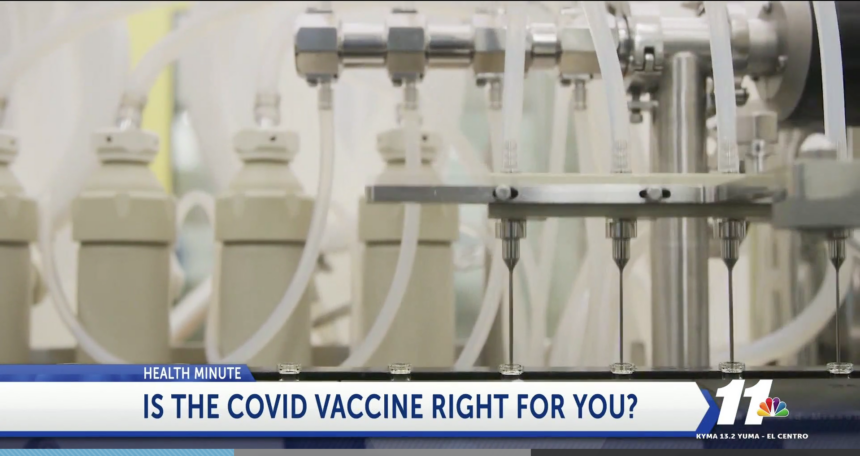Is the COVID-19 vaccine right for you? Here’s what medical experts are advising

(KYMA, KECY, CNN) – As more COVID-19 vaccines roll out, you may be wondering whether to get vaccinated when one becomes available to you – especially if you’re pregnant, nursing, are immunocompromised or have allergies.
Two coronavirus vaccines currently have the green light in the U.S.
The first is the Pfizer-BioNTech vaccine, two shots given 21 days apart. That one is recommended for anyone 16 years and older.
The second is Moderna’s vaccine. That vaccine is also two shots, but they’re given 28 days apart. The Moderna vaccine is recommended for those 18 and over.
Research is still being done to determine whether the vaccines are safe for children and younger teens.
If you’re pregnant, you can choose to get the vaccine, but Elizabeth Cohen, CNN’s senior medical correspondent, said: “You should know that these vaccines were not extensively studied in pregnant women, so there’s limited safety data to look at for that group.
“On the other hand, COVID-19 itself poses a risk for pregnant women. The CDC says that some women who contract COVID-19 are at an increased risk of severe illness and might also be at an increased risk for having a pre-term birth.”
Both Pfizer and Moderna created MRNA vaccines, which aren’t thought to be harmful for a nursing child, according to the U.S. Centers for Disease Control and Prevention.
For those who are immunocompromised, they can choose to get the vaccine, but these vaccines weren’t substantially studied for their underlying health conditions.
“So, there’s not enough data on how safe they are or how effective they are yet,” Cohen said. “On the other hand, getting infected with COVID-19 can be risky for people with compromised immune systems.”
For those with allergic reactions, Cohen said: “The CDC says you shouldn’t get the shot if you’re allergic to the components in these vaccines, which you can review on the vaccine’s product labels.”
For those with common allergies to animals or food, the FDA says they are no more likely than the general public to have an allergic reaction to the approved coronavirus vaccines.
